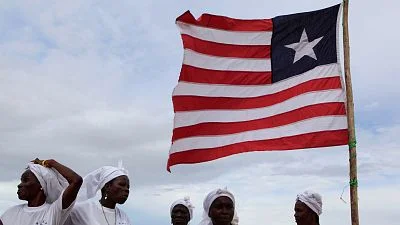Liberians applying for U.S. non-immigrant visas (F, M, or J categories) must now grant American authorities access to their social media accounts, the U.S. Embassy in Monrovia announced on Wednesday June 25, 2025.
The embassy’s website states that applicants should set all social media accounts to “public” to facilitate vetting for identity and admissibility under U.S. law.
The policy, part of a broader U.S. State Department initiative launched on June 18, aims to “ensure those applying for admission do not intend to harm Americans,” emphasizing that “a U.S. visa is a privilege, not a right.”
This requirement extends beyond Liberia, reflecting President Donald Trump’s intensified immigration crackdown since his January 2025 return to office.
The policy coincides with a new travel ban targeting citizens from 12 countries—Afghanistan, Myanmar, Chad, Republic of Congo, Equatorial Guinea, Eritrea, Haiti, Iran, Libya, Somalia, Sudan, and Yemen—with partial restrictions for Burundi, Cuba, Laos, Sierra Leone, Togo, Turkmenistan, and Venezuela.
Exceptions apply for specific countries (e.g., Afghanistan) and events like the 2026 World Cup and 2028 Los Angeles Olympics, though details remain vague.
Sweeping Immigration Measures
The U.S. Supreme Court’s June 23 decision to allow deportations to third countries, lifting a prior court order, has further escalated tensions.
The ruling enables the Trump administration to deport migrants without immediate challenges, sparking protests and legal battles.
The travel ban, an evolution of Trump’s 2017 “Muslim ban” on seven predominantly Muslim nations, faced lawsuits for being unconstitutional but was upheld in a revised form in 2018.
“The administration is trying to avoid past legal pitfalls,” said Jeff Joseph, president-elect of the American Immigration Lawyers Association, though he expects new lawsuits.
The 2017 ban disrupted travel for students, professionals, and tourists, with detentions at U.S. airports.
The current ban, affecting African nations like Sudan and Somalia, mirrors regional challenges, such as Nigeria’s struggle with UAE visa restrictions requiring a $60,000 bank balance, highlighting barriers to African mobility.
Liberia, with a population of 5.4 million, faces additional scrutiny, potentially straining U.S.-Liberia relations.
Economic and Regional Context
The visa policy could impact Liberia’s diaspora, a key source of remittances, similar to how Ghana’s $2.8 billion debt restructuring deal aims to stabilize its economy amid global pressures.
African nations, grappling with economic crises (e.g., Ghana’s 2022 debt default, Nigeria’s refinery woes), face compounded challenges when citizens encounter international mobility barriers.
The U.S. policy may deter Liberian students and workers, affecting educational and economic ties.
A Test for Diplomacy
As Trump’s policies reshape global migration, Liberians face heightened scrutiny.
Can African governments advocate for fair treatment, or will tightened visa rules deepen isolation?
With lawsuits looming, the world watches this evolving immigration landscape.























